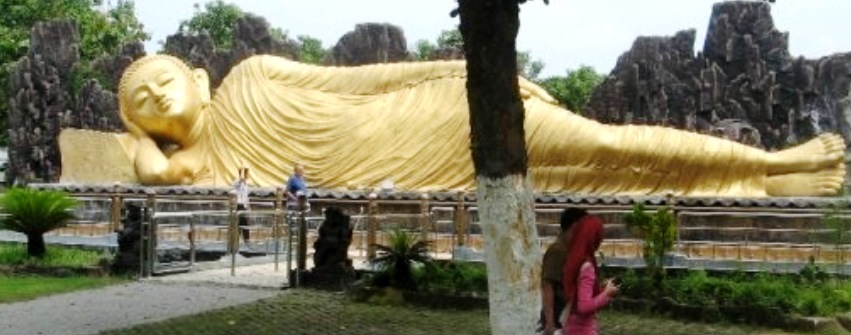KITLV/Royal Netherlands Institute of Southeast Asian and Caribbean Studies

- This event has passed.
Seminar ‘Hybridity and fragmentation: Buddhist nomospheres in colonial and post-colonial Indonesia’
19/08/2015 @ 15:30 - 17:00

By Martin Ramstedt. What Ramstedt proposes to do in his lecture is to apply Bakhtin’s concept of the chronotope to the investigation of different Buddhist nomospheres in colonial and post-colonial Indonesia in order to better understand the spatio-temporal configurations, and thereby the world-making power, of the normativities embedded in them. Ramstedt consequently understands “nomosphere” as referring to concrete space-times in which heterogeneous major and minor normative chronotopes have become actualized to varying degrees.
In his investigation of the Buddhist nomospheres of colonial Indonesia Ramstedt has discerned processes of intentional hybridization between a major chronotope, i.e., that of “late colonial bourgeois cosmopolitanism”, and the minor chronotopes of “Greater India” and “Buddhism as a rational religion”. During the Indonesian Revolution and subsequent national unification process, this hybridization became semantically unproductive and in the end inadequate. In post-colonial Indonesia, it was the chronotope of “Indonesian pancasila-nationalism” that had to be intentionally hybridized with the minor chronotopes of “Buddhist revivalism” and “the Golden Hindu-Javanese past”. As a consequence, Indonesian Buddhism became fragmented and has remained at the margins of major developments in the Asian Buddhist world in the sense that the Indonesian Buddhist communities hold no ordination lines of their own. It has been due to the so-called derivative nature of Indonesian Buddhism that the latter has rarely become a topic of serious Buddhist studies research. Ramstedt hopes to show, though, that an investigation of this “derivative”, or hybrid, nature of modern Indonesian Buddhism can help honing our analytical lenses for other dynamics of religious hybridization elsewhere in the world.
If you wish to attend this seminar please register with Yayah Siegers: [email protected].
Details
- Date:
- 19/08/2015
- Time:
-
15:30 - 17:00
- Event Category:
- KITLV Events
Organizer
- KITLV
- Phone
- +31 (0)71 527 2372
- sitinjak@kitlv.nl
- View Organizer Website
Venue
- KITLV, room 138
-
Reuvensplaats 2
Leiden, Netherlands + Google Map



